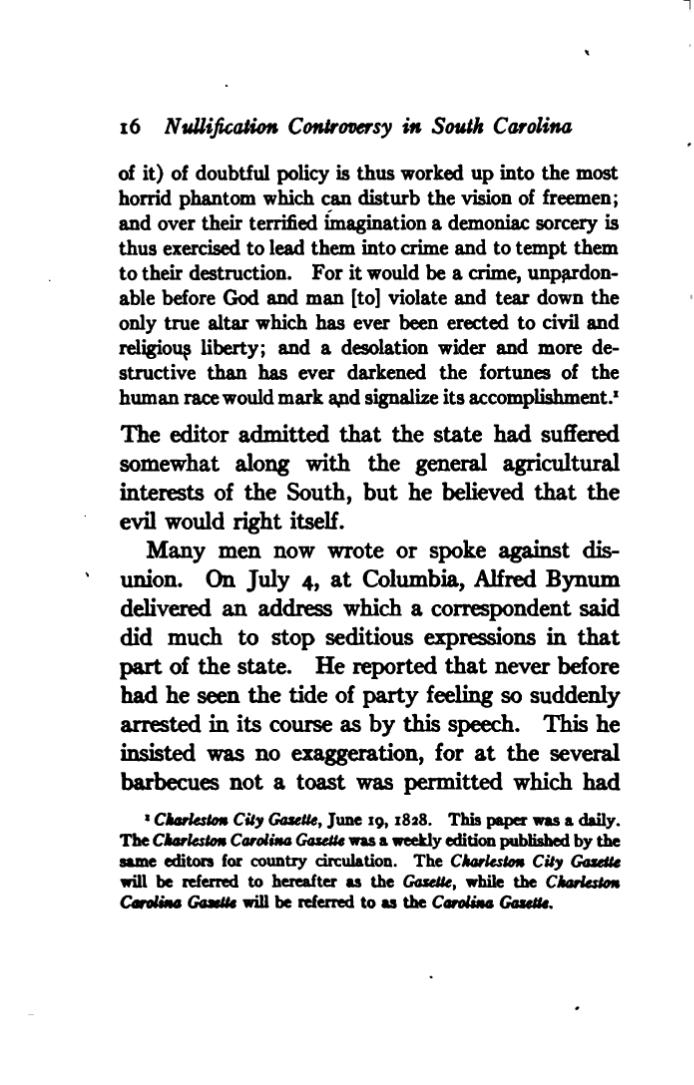This page has been validated.
16
Nullification Controversy in South Carolina
of it) of doubtful policy is thus worked up into the most horrid phantom which can disturb the vision of freemen; and over their terrified imagination a demoniac sorcery is thus exercised to lead them into crime and to tempt them to their destruction. For it would be a crime, unpardonable before God and man [to] violate and tear down the only true altar which has ever been erected to civil and religious liberty; and a desolation wider and more destructive than has ever darkened the fortunes of the human race would mark and signalize its accomplishment.[1]
The editor admitted that the state had suffered somewhat along with the general agricultural interests of the South, but he believed that the evil would right itself.
Many men now wrote or spoke against disunion. On July 4, at Columbia, Alfred Bynum delivered an address which a correspondent said did much to stop seditious expressions in that part of the state. He reported that never before had he seen the tide of party feeling so suddenly arrested in its course as by this speech. This he insisted was no exaggeration, for at the several barbecues not a toast was permitted which had
- ↑ Charleston City Gazette, June 19, 1828. This paper was a daily. The Charleston City Gazette was a weekly edition published by the same editors for country circulation. The Charleston City Gazette will be referred to hereafter as the Gazette, while the Charleston Carolina Gazette will be referred to as the Carolina Gazette
